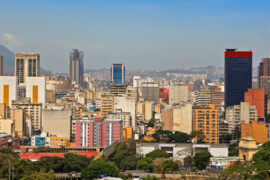In brief
In the framework of the global pandemic and given the continuing rise of COVID-19 cases in Argentina, the national government through Decree 81/2021 establishes the preventive measures applicable between 12 June and 2 June 2021, extending the measures approved by means of Decree 287/2021.
In depth
In particular, the national government sets out the following:
- It ratifies the general and mandatory rules of conduct that all citizens must comply with throughout the national territory in order to prevent the circulation and contagion of COVID-19.
- It establishes that economic, industrial, commercial and service activities may continue to be carried out as long as they have an operating protocol approved by the corresponding health authority.
- It orders employers to continue guaranteeing the hygiene and safety conditions established by the health authority to preserve the health of their employees.
- It differentiates prevention measures according to the parameters to define epidemiological and sanitary risk. In this way, different measures were established according to the existence of Low, Medium and High Epidemiological Risk and to the number of citizens.
- It provides that governors and the chief of state of the Autonomous City of Buenos Aires will dictate the necessary measures to implement the provisions of the decree as delegates of the federal government.
Furthermore, the City of Buenos Aires and the Province of Buenos Aires provided certain additional measures, which relaxes certain measures approved by the national government in the AMBA region. In particular, the following establishments have been re-opened: (i) schools; (ii) shopping malls and commercial centers; (iii) restaurants; (iv) places of worship; and (iv) cinemas and theatres.
Finally, restriction of movement was established between 12 am and 6 am in the High Epidemiological Risk areas. However, such restriction is not applicable to the following: (i) individuals working on essential activities and services who may use public means of transport for such purpose; (ii) individuals working on industrial activities during night shifts, according to their relevant protocols; and (iii) those who must return to their homes from their working place or attend work.
In all of these cases, exempted individuals must carry the relevant “Unique Certificate for Circulation – COVID-19 Emergency.”





